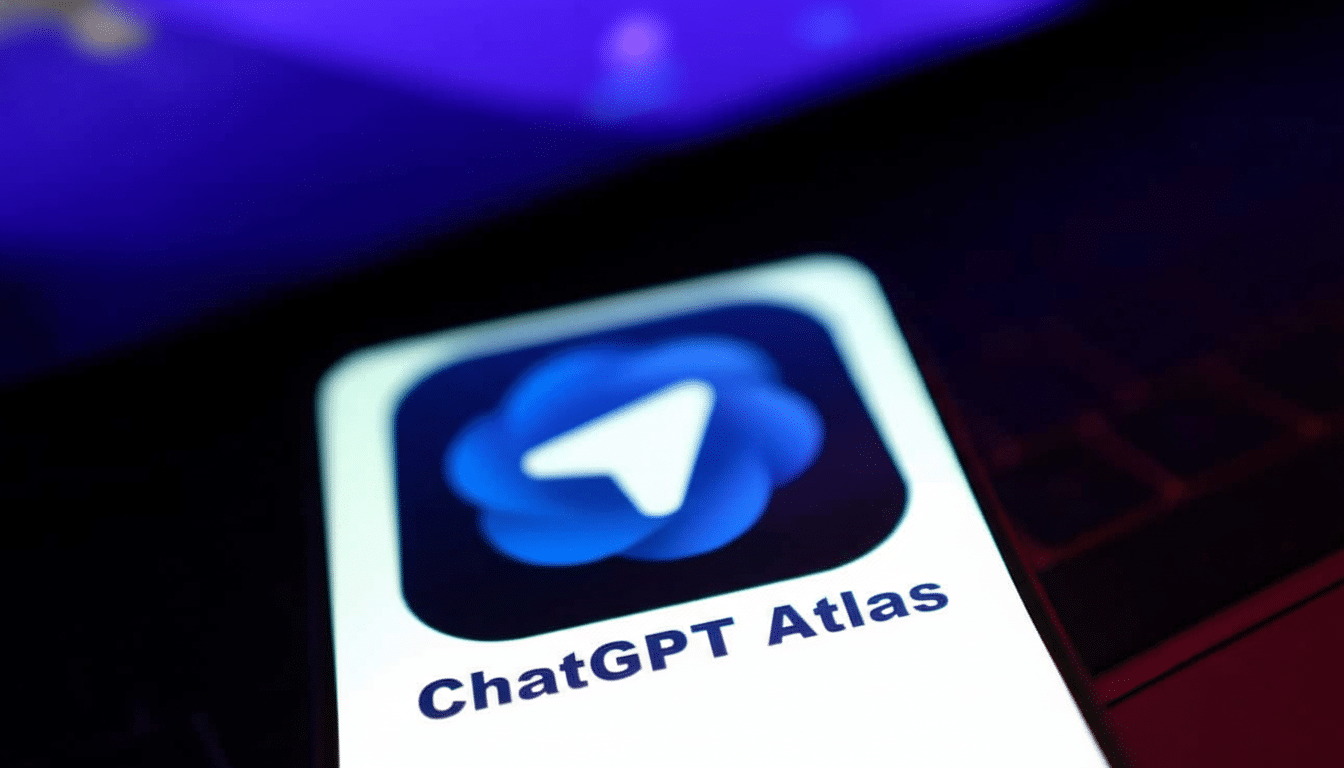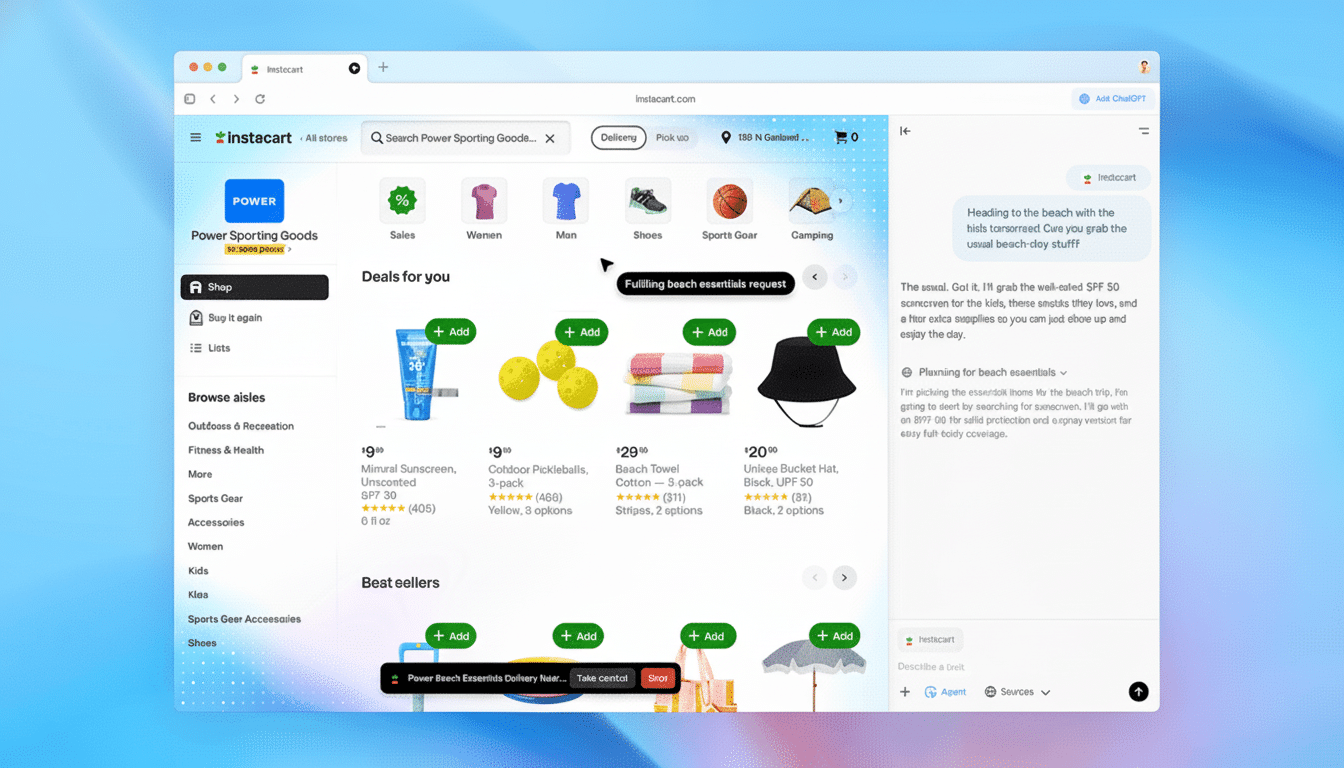OpenAI’s Atlas browser is a new stake right in Google’s front yard. It is not just another Chrome skin with a chatbot tacked on; it represents the browser as a conversational agent that can read, reason and act across the web on behalf of its user. That is a direct attack on Google’s supremacy in both Chrome and search, the twin supports that have propped up each other for years.
The Chat‑Native Browser That’s About to Threaten Google
Historically browsers have been passive windows upon the web. Atlas flips the switch on that by making the chat interface its central mode of navigation. Instead of opening tabs and pasting queries into a search box, users ask, refine and iterate with an assistant that can go to pages, pull down facts, collect different texts for comparison or explanation — all while maintaining the context of the information being considered in a workspace that is separate from the web. It’s search as a multi‑turn dialog, not just a list of blue links.

That upheaval strikes at Google’s heart. Chrome’s scale feeds Google Search; Search’s ubiquity feeds Google Ads. Chrome accounts for more than half of global browser use, according to StatCounter; and Google dominates old-fashioned web search. A browser that acts as an intermediary for intent, by running through a chat layer — many times not even reaching results pages — disrupts the surfaces where Google places its ads and gathers behavioral signals.
The credibility of the attempted answer is also important. Atlas is the brainchild of Ben Goodger, a Firefox veteran and early architect of Chrome. If anyone got how defaults, performance, and UX aggregate to shift user habits around, it was the engineer who helped create Google’s own winning playbook.
Distribution Is Destiny for Any Browser’s Survival
Great browsers die without distribution. Chrome flourished with relentless performance and a deluge of frictionless installs. Atlas comes with a different springboard: the giant funnel of ChatGPT. Even if only a small percent of that user base makes Atlas its daily driver, this is non-trivial share moving off of Chrome, meaning downstream search defaults and ad exposure don’t automatically get monetized.
Timing also coincides with antitrust pressure. A federal case determined Google illegally maintained its dominance in search; remedies have shone a spotlight on default deals and exclusivity. Google’s multibillion‑dollar agreements to secure defaults for its engine on key platforms, most importantly mobile, have been a linchpin of its distribution strategy. Any move that softens the “default advantage,” or causes users to more often take a chat‑first path, increases the odds of Atlas.
Already, competitors are pushing in this direction. Microsoft has woven Copilot into Edge and Windows, while more recent efforts like Arc and Perplexity are combining browsing with conversational search. Atlas takes that further toward agent-style control over pages, and more guarantees less friction between finding, understanding, doing.
Search, Ads, and the Data Moat Facing Google’s Empire
Google’s model was built for pages and queries. A chat‑native browser is optimized for answers and actions. That’s more than a UX decision; it skews the economics of the web. When a bot consistently generates information, people click fewer links and spend little time on results pages and also view fewer search ads.

OpenAI currently does not operate an ad business, but the ad experience indicates that adtech expertise may soon be in demand. The game is about getting first‑party intent data. A browser that the user has consented to can take some observations of on‑page interactions, selections, and outcomes — allowing signals which were more challenging to catch since the fade of third‑party cookies. The Interactive Advertising Bureau has been citing the migration toward first‑party data as of late; Atlas could soon be a powerful fount of that.
It’s that prospect that explains just why this maneuver rings so true in Mountain View. Google has answered AI competition with Gemini‑enabled summaries in search, but there is a fundamental difference between bolting on AI to the results page and making AI the operating system of the browser. Once users become accustomed to multi‑turn, agentic sessions that fetch, verify and enact, the center of gravity moves away from familiar Google surfaces.
It All Boils Down to Privacy, Trust, and User Control
A browser that can read what’s on your screen is powerful — and delicate. Trust will depend on clear, informed consent, clear delineation between what is processed on‑device and in the cloud, and strong data minimization. Privacy regulators in Europe and California have emphasized purpose limitation and transparency; watchdogs like the Electronic Frontier Foundation will zero in on how any assistant gets to page content, passwords and messages.
The gates may need to be designed in a way that makes access controls impossible to miss and easy to understand, maintains audit trails and allows for enterprise‑grade policy enforcement. Without that, Atlas risks the same doubt that haunts any other data‑hungry platform. With it, the product can more easily set itself apart from incumbents with advertising businesses that could in theory cause perceived conflicts of interest.
Metrics That Will Tell Us Whether Atlas Lands
Three signals matter most. First things first, default stickiness: the ratio of users who set Atlas as their system or mobile default and keep it that way. Secondly, query diversion: the number of tasks users manage to solve through chat and never reach a conventional search results screen. Third, partner traction: integration with content platforms, commerce and productivity suites that makes the browser a do‑engine, not just a read‑engine.
If Atlas can surmount those bars — while serving up performance at Chrome‑class level and privacy that’s bulletproof — it will force a reckoning for Google. For the first time in a decade, control of the web seems possible to shift from the URL and search box directly into the user’s browser, via a conversational agent. That is the broadside, and it’s a shot across the heart of Google’s network effect.

